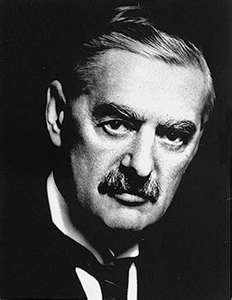 This week in the war, on Thursday 4 April, British Prime Minister Neville Chamberlain gave an optimistic speech to Conservative Party members, declaring that Hitler had ‘missed the bus.’ Following the collapse of Poland the previous year, Europe had settled into the so-called Phoney War, with little or no action from the main combatants. Hitler had abandoned his Plan Yellow, and the Soviet-Finnish war had come to an end. Germany had been better prepared at the outbreak of World War II, Chamberlain reasoned, but Hitler’s inaction had given the Allies opportunity to organize and gain strength.
This week in the war, on Thursday 4 April, British Prime Minister Neville Chamberlain gave an optimistic speech to Conservative Party members, declaring that Hitler had ‘missed the bus.’ Following the collapse of Poland the previous year, Europe had settled into the so-called Phoney War, with little or no action from the main combatants. Hitler had abandoned his Plan Yellow, and the Soviet-Finnish war had come to an end. Germany had been better prepared at the outbreak of World War II, Chamberlain reasoned, but Hitler’s inaction had given the Allies opportunity to organize and gain strength.
A few days later, Germany launched a full scale invasion of Denmark and Norway. Within a month, Hitler’s Blitzkrieg would strike against the Low Countries and France. The reality of 1–7 April 1940 and the days that followed is succinctly (and eloquently) put by Churchill: ‘Complete immobility and silence reigned behind the German front. Suddenly the passive or small-scale policy of the Allies was swept away by a cataract of violent surprises.’ [Winston S. Churchill: The Second World War (Cassell, 1959)].
